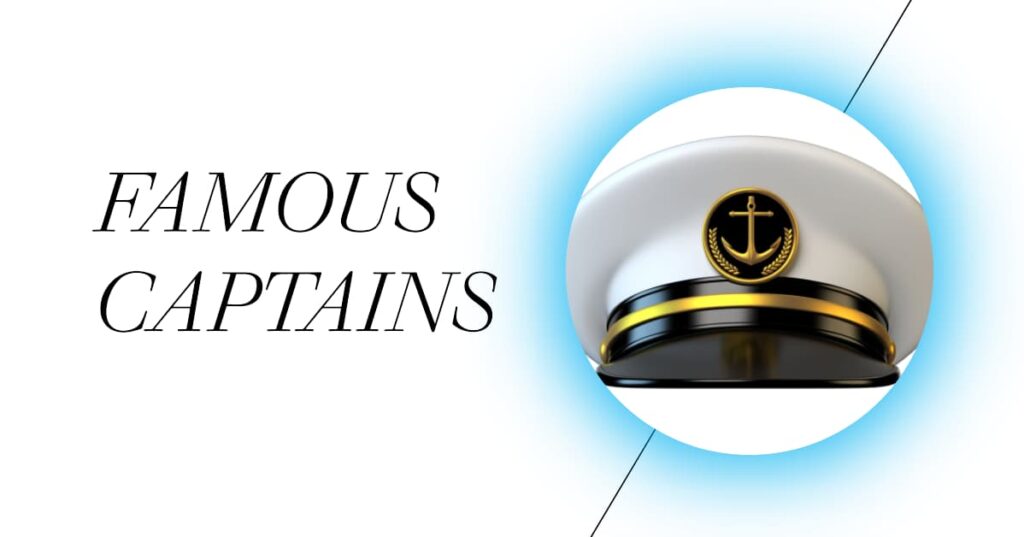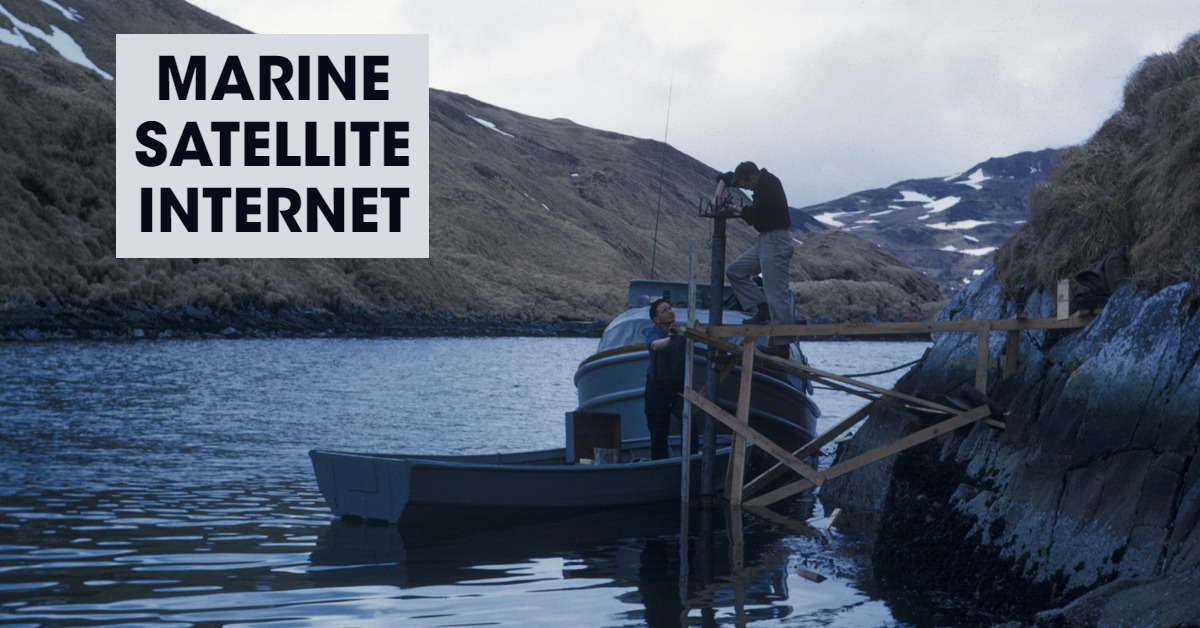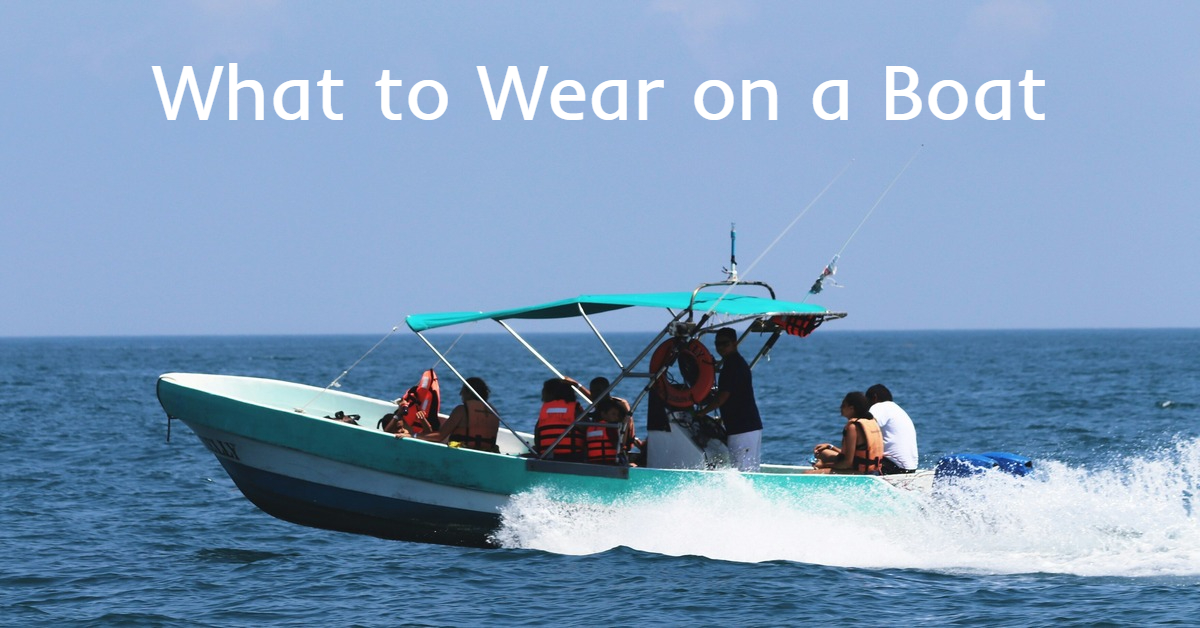Famous captains. There’s something inherently intriguing about them, isn’t it?
Their ability to commandeer ships, lead crews, and navigate the vast, unpredictable expanse of the sea, all the while making significant contributions to history, is nothing short of awe-inspiring.
Today, we’re embarking on an exciting voyage, tracing the wake of some of the most influential captains the world has ever known.

The Leaders on the High Seas: Their Role and Legacy
Commanding a vessel is no mean feat. A ship’s captain shoulders tremendous responsibilities, from the safety of the crew to the successful execution of the voyage. But what sets the renowned captains apart, the ones who’ve been immortalized in our collective memory, is their ability to navigate beyond the horizon, metaphorically and literally.
These famous captains made lasting impacts through exploration, warfare, or trade, carving paths where none existed before. However, it’s not all about lauding their achievements. It’s crucial to also understand that their expeditions often had downsides, sometimes leading to conflicts, loss of life, or negative environmental impacts.
The Cost of Sea-Borne Leadership: A Closer Look
We often romanticize life at sea, envisioning thrilling adventures and treasure chests. However, the reality can be far harsher. The cost of these voyages, both in terms of finances and human lives, was often exorbitant. The infamous Santa Maria, led by the renowned Christopher Columbus, for example, met a disastrous end, becoming a shipwreck with untold treasures.
These financial and human costs were significant drawbacks to such expeditions. However, these voyages also opened up new trade routes, sparked cultural exchanges, and advanced our understanding of the world, making them invaluable in the grand scheme of human progress.
Sailing Through Time: Notable Captains and Their Contributions
Without further ado, let’s chart the course through history and get acquainted with some famous captains who’ve left indelible marks on maritime history.
| Captain | Era | Significant Contribution |
|---|---|---|
| Christopher Columbus | Late 15th Century | Opened up the New World for exploration and colonization |
| Ferdinand Magellan | Early 16th Century | Led the first circumnavigation of the globe |
| James Cook | Mid 18th Century | Mapped the Pacific, discovered the Hawaiian Islands |
| William Bligh | Late 18th Century | Survived a mutiny and completed a remarkable open-boat journey |
| Grace Hopper | 20th Century | Pioneered computer technology in the US Navy |
| Sir Francis Drake | Late 16th Century | Circumnavigated the globe, successful privateer |
| Ching Shih | Early 19th Century | Commanded one of the most formidable pirate fleets |
| Captain Nemo | Fictional | Epitomizes the spirit of maritime exploration and freedom |
| Ernest Shackleton | Early 20th Century | Notable for his Antarctic explorations and leadership |
| Richard Phillips | 21st Century | Displayed bravery and leadership during a piracy incident |
Columbus and the Age of Exploration
The name Christopher Columbus is virtually synonymous with maritime exploration. As the captain of Santa Maria, Columbus’s voyages opened the path for widespread European exploration and eventual conquest of the Americas. His journeys led to long-lasting contacts between the Old and New Worlds, catalyzing sweeping changes in global economic and cultural landscapes.
Magellan’s Voyage: A Journey Around the World
Ferdinand Magellan, a Portuguese mariner sailing for Spain, earned his place in the annals of famous captains by leading the first expedition that circumnavigated the globe.
Despite not living to complete the journey himself, Magellan’s voyage proved that the world was indeed round, a revelation that revolutionized geography and navigation.
Captain Cook and the Pacific
James Cook, a British naval captain, was instrumental in mapping the Pacific, including the Hawaiian Islands, New Zealand, and the eastern coast of Australia.
His detailed and accurate maps, some of which remained in use until the 20th century, significantly contributed to our understanding of the world’s geography. His encounters with indigenous peoples, although marred by conflicts at times, introduced the Western world to diverse cultures and societies.
The Survival Tale of Captain Bligh
Captain William Bligh is often remembered for the mutiny on the Bounty rather than his navigational skills. Nevertheless, he demonstrated exceptional seafaring prowess after the mutiny.
Set adrift in a small open boat with 18 loyalists, Bligh navigated over 3,600 nautical miles to safety in Timor, using only a pocket watch and a quadrant. His ordeal stands as one of the most remarkable feats of seamanship.
Grace Hopper: The Modern Captain
Captain Grace Hopper was a remarkable figure in the U.S. Navy, a famous captain of a different sort.
As a pioneer of computer technology, she was instrumental in developing one of the first compilers and popularizing the idea of machine-independent programming languages.
Her contributions laid the foundation for COBOL, a widely adapted language that revolutionized data processing. Hopper’s navigational charts weren’t of seas, but of the burgeoning landscape of computer technology.
Steering the Future: The Role of Modern-Day Captains
While we’ve explored famous captains of the past, it’s equally important to appreciate contemporary sea leaders. Modern captains shoulder a plethora of responsibilities and navigate a myriad of challenges. From ensuring the safety of large crews and expensive cargo to navigating congested sea lanes and complex maritime regulations, their job has never been more demanding.
Today, famous captains don’t merely explore uncharted territories; they’re at the helm of technological advancements, sustainability initiatives, and multicultural cooperation. They lead not just in times of war and discovery, but also in the spheres of science, commerce, and environmental stewardship, charting the course for a better, more interconnected world.
Sir Francis Drake: The Privateer Extraordinaire
Sir Francis Drake, an English sea captain and privateer, is celebrated for his audacious exploits. He was the second person to circumnavigate the globe and was notorious for his successful raids on Spanish vessels during the Anglo-Spanish War, earning him the admiration of the English and the disdain of the Spanish.
Ching Shih: The Pirate Queen
One of the most formidable pirate captains in history was a woman named Ching Shih. She commanded the infamous Red Flag Fleet, terrorizing the China Sea in the early 19th century. With hundreds of ships under her control, she became a force to be reckoned with, demonstrating exceptional strategic and leadership skills.
Captain Nemo: The Iconic Fictional Mariner
Although a fictional character, Captain Nemo from Jules Verne’s “20,000 Leagues Under the Sea” has made a significant impact on maritime culture. Known for his advanced submarine, the Nautilus, and his yearning for freedom and knowledge, Nemo embodies the adventurous spirit and intellectual curiosity that characterize the best sea captains.
Ernest Shackleton: The Antarctic Explorer
Ernest Shackleton, an Anglo-Irish explorer, led several expeditions to the Antarctic, with the goal of reaching the South Pole. Although he never accomplished this objective, Shackleton is remembered for his exceptional leadership abilities, particularly during his ill-fated Endurance expedition, when he successfully ensured the survival of his entire crew despite being stranded on ice for over a year.
Final Thoughts: Lessons from Famous Captains
Looking back at these famous captains, we can glean lessons that transcend the maritime realm. Their tenacity, leadership, and innovation are as relevant on land as they are at sea. The stories of these captains also serve as reminders of our collective journey as a civilization, showcasing the drive to explore, discover, and push boundaries inherent in human nature.
Indeed, the tales of famous captains are not merely stories of the sea. They are reflections of our history and values, pointers for the present, and compasses for the future, inspiring us to navigate life’s tumultuous seas with courage and determination. Let their stories be the wind in our sails as we chart our own courses, on the seas and beyond.
| Famous Captain | Notable Ship | Significant Achievement |
|---|---|---|
| Christopher Columbus | Santa Maria | Opened up the New World for exploration |
| Ferdinand Magellan | Trinidad | First circumnavigation of the globe |
| James Cook | HMS Endeavour | Discovery and mapping of the Pacific |
| William Bligh | HMS Bounty | Survived a mutiny and navigated open sea with no charts |
| Grace Hopper | N/A | Pioneered computer technology in the US Navy |
| Sir Francis Drake | Golden Hind | Circumnavigation of the globe and privateering exploits |
| Ching Shih | Red Flag Fleet | Commanded a formidable pirate fleet |
| Captain Nemo | Nautilus | Represents the spirit of maritime exploration in literature |
| Ernest Shackleton | Endurance | Survived a disastrous Antarctic expedition |
| Richard Phillips | MV Maersk Alabama | Displayed bravery during a piracy incident |
FAQs about Famous Captains
Who are some famous captains in history?
Notable captains include Christopher Columbus, Ferdinand Magellan, James Cook, William Bligh, and Sir Francis Drake.
Who is a famous female captain?
Ching Shih, also known as the Pirate Queen, was a formidable captain who commanded the Red Flag Fleet in the early 19th century.
What was the significance of these famous captains?
Their voyages led to significant discoveries, advancements in navigation, and cultural exchanges, shaping the course of history.
Who is a famous captain from literature?
Captain Nemo from Jules Verne’s “20,000 Leagues Under the Sea” is an iconic figure in maritime literature.
Who is a contemporary famous captain?
One standout figure is Captain Richard Phillips, celebrated for his courage during the 2009 hijacking by modern pirates of the MV Maersk Alabama. His compelling story has also inspired one of the best sailing movies, a topic you can explore further in this article about best sailing movies.
- Sustainable and Luxurious: Discovering Split’s Yachting Paradise – April 26, 2024
- MarineTraffic vs VesselFinder: Which Is Better Vessel Tracking Service? – February 14, 2024
- Port Costs: A Comprehensive Guide to Port Dues and Fees for Cargo Ships – February 12, 2024




Leave a Reply